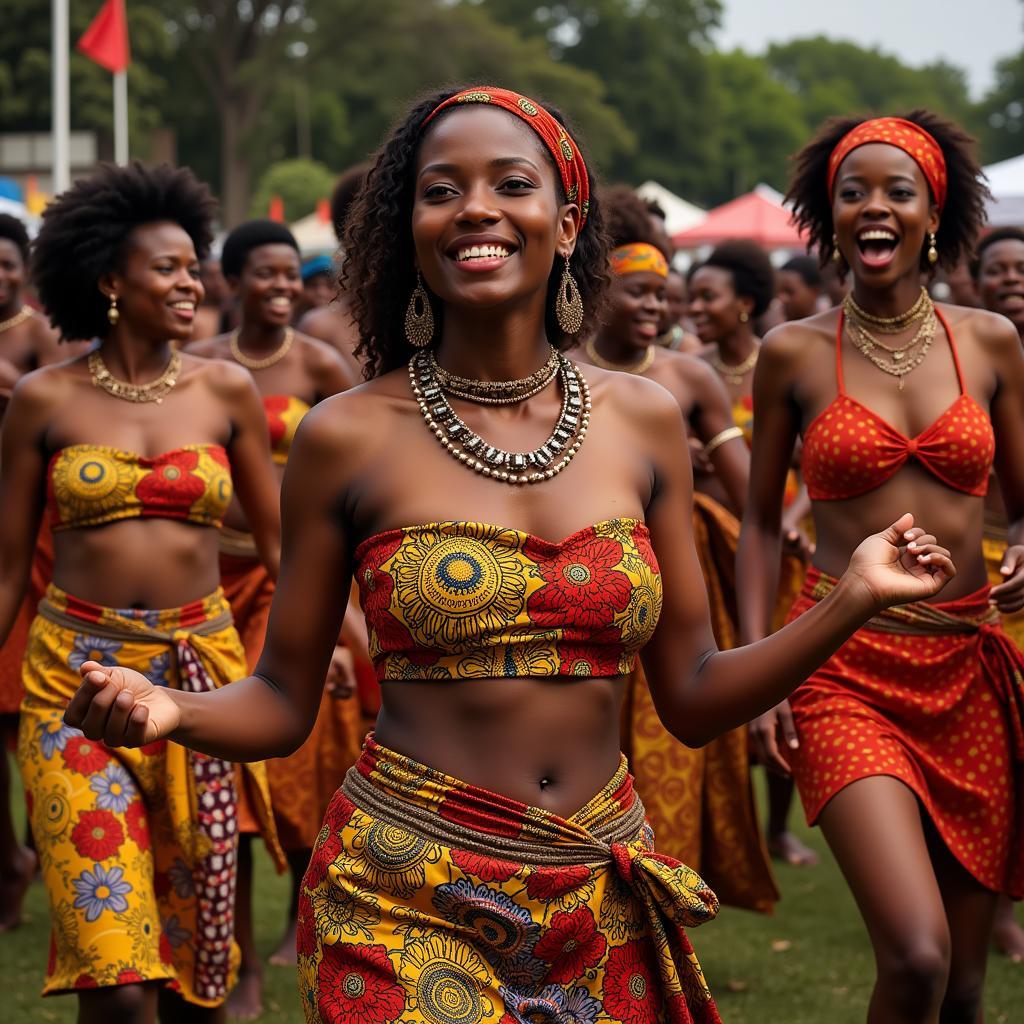An African Father Talking to Son: A Timeless Bond
An African father talking to his son is a scene etched into the very fabric of the continent, a powerful representation of heritage, wisdom, and love. This exchange, often steeped in tradition and cultural nuances, is more than just conversation; it’s a vital link between generations, shaping the future while honoring the past.
The Weight of Words: An African Father’s Guidance
Across the diverse tapestry of Africa, fatherhood holds a revered position. A father is not merely a provider but a teacher, a mentor, a guardian of values. When an African father talks to his son, it’s a moment imbued with significance. Whether beneath the shade of a baobab tree or within the walls of a modern home, these conversations carry the weight of ancestral wisdom and hopes for the future. The lessons imparted might be about respect for elders, the importance of community, or the navigation of life’s challenges. Sometimes the message is delivered through proverbs and stories, other times through direct instruction. It’s in these moments that a son learns what it means to be a man in his particular culture. This interaction is crucial, fostering not only a sense of identity but also responsibility.
For example, in many African cultures, fathers play a significant role in teaching their sons about their heritage, including family history, tribal customs, and traditional practices. These conversations often involve storytelling, where fathers share narratives passed down through generations, instilling a sense of belonging and cultural pride in their sons. This practice connects the past with the present, ensuring the continuity of cultural heritage.
Navigating Modernity: African Fatherhood in a Changing World
The dynamic between an African father and son isn’t static. It evolves alongside societal changes and the increasing influence of globalization. While traditional values remain deeply ingrained, modern African fathers often face the added challenge of preparing their sons for a world vastly different from their own. This includes navigating issues such as education, technology, and the complexities of a globalized economy. These fathers must bridge the gap between ancient wisdom and contemporary realities. It’s a delicate balancing act, ensuring that their sons are equipped to thrive in the modern world while still holding onto the core values that define their identity. This often involves open discussions about the challenges and opportunities that come with globalization, fostering critical thinking and adaptability.
The Unspoken Language: Love and Respect in African Families
Beyond the spoken word, there exists a profound language of love and respect between African fathers and sons. This is often expressed through actions rather than grand pronouncements. It might be a firm handshake, a knowing glance, or the quiet presence at a significant event. These subtle gestures speak volumes about the depth of the bond. It’s a connection forged through shared experiences, mutual respect, and a deep understanding of one another’s place within the family and the wider community. This silent language transcends cultural differences and speaks to the universal nature of the father-son relationship. This unspoken communication is often more potent than any verbal exchange. It reinforces the bond and provides a sense of security and belonging. For more information on African American history books for kids, check out this link: african american history books for kids.
What are some common topics discussed between an African father and son?
Topics discussed between an African father and his son are diverse, ranging from cultural values and traditions to practical life skills and advice on navigating modern challenges. These discussions often involve storytelling, sharing family history, and instilling a sense of responsibility and belonging within the community.
How do African fathers express love and affection for their sons?
While expressions of affection may vary across different cultures, African fathers often demonstrate their love through actions rather than words. This could include providing guidance and support, sharing life experiences, and being present for important milestones in their son’s life. There’s also often a strong emphasis on instilling a sense of pride in their heritage and cultural identity. For some interesting facts about famous Africans, see african famous people facts.
What role do African fathers play in their son’s education?
Education is highly valued in many African cultures, and fathers play a crucial role in encouraging their sons to pursue academic excellence. This may involve providing financial support, offering guidance on career choices, or simply emphasizing the importance of learning and knowledge. The goal is to equip their sons with the tools they need to succeed in life.
Conclusion
An African father talking to his son is a powerful and enduring image, symbolizing the transmission of wisdom, values, and love across generations. While the context and specific conversations may evolve with time, the fundamental importance of this bond remains unchanged. It’s a testament to the enduring strength of family and the vital role fathers play in shaping the future of their sons and, by extension, their communities. It is a relationship that continues to shape the very essence of what it means to be African. For those interested in African American surnames, you can find a helpful resource here: african american surnames with m.
FAQ
- How does an African father traditionally discipline his son? Discipline varies across cultures, but often involves a combination of instruction, guidance, and consequences aimed at teaching responsibility and respect.
- What is the significance of storytelling in the father-son relationship? Storytelling is a powerful tool for transmitting cultural values, history, and life lessons, strengthening the bond between generations.
- How are modern African fathers adapting to changing societal norms? They are balancing traditional values with the demands of a globalized world, preparing their sons for the challenges and opportunities of the future. You can find more about African American male puberty here: african american male puberty.
- What are some common challenges faced by African fathers today? Economic pressures, societal changes, and the influence of globalization present unique challenges to maintaining traditional values and providing for their families.
- How can we support and empower African fathers? By promoting education, providing resources, and celebrating the important role they play in their families and communities. For some African music, you might enjoy african china i want to know mp3.
- What are some cultural variations in African fatherhood? Across the continent, different ethnic groups and tribes have unique customs and traditions that shape the father-son dynamic.
- How can we learn more about the diversity of African cultures? Through research, engagement with diverse communities, and respectful exploration of different traditions and perspectives.
Other Questions and Related Articles
You might also be interested in learning about:
- The role of mothers in African families
- Traditional coming-of-age ceremonies for young men
- The impact of colonization on African family structures
You can find more articles about African culture and life on our website.
Call to Action
For support or further information, please contact us:
Phone: +255768904061
Email: [email protected]
Address: Mbarali DC Mawindi, Kangaga, Tanzania
Our customer service team is available 24/7.


